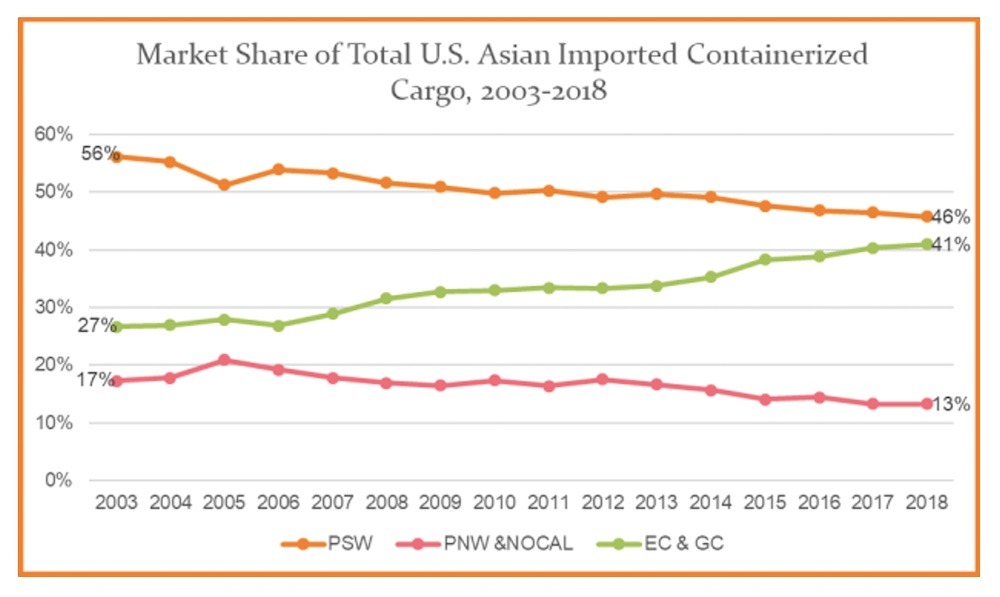Cargo is the lifeblood of the LA/LB Ports, enabling jobs and economic vitality for port communities, the region and the state. The Ports generate a total of 179,108 direct, indirect and induced jobs (excluding jobs generated by importers and exporters) in the Los Angeles region.
A critical driver for the Ports is discretionary cargo – container cargo that arrives at the LA/LB Ports and is then shipped by truck or rail to destinations elsewhere in the United States. Approximately one-third of the containers coming into the LA/LB Ports is discretionary cargo.
In 2018, discretionary cargo at the LA/LB Ports supported nearly 68,253 direct, induced and indirect jobs in the Southern California economy. Of these, 28,078 are direct jobs that provide $7.1 billion in wages and $851 million in state and local taxes. Direct jobs include longshore, trucking, rail, warehouse, etc.
The LA/Long Beach Ports are losing overall market share of Asian imported containerized cargo to East Coast and Gulf Coast ports at an alarming rate. (see chart)

Terminal operators are required to replace diesel cargo handling equipment in order to improve air quality at a cost of billions of dollars, adding significant increases to current non-competitive container handling charges.
Automation will help offset these costs and help retain market share. South Atlantic
Current container charges at LA/Long Beach are 90% to 165% higher than those of competing ports, resulting in lost discretionary cargo to East Coast and Gulf Coast ports.

The loss of discretionary cargo that has a significant multiplier effect on trucking and rail, warehousing and distribution, and importers and exporters. $540
Automation delivers benefits in terms of continued employment within port communities and in the region. Modernizing APM Terminals / Pier 400 would assist in stemming the ongoing decline in market share by partially balancing the increased costs of environmental compliance and increasing efficiencies within the terminal.
The collective bargaining agreement with the ILWU specifically recognizes the contractual right of terminal operators to automate. The impact of automation on the ILWU workforce would be limited. Under the collective bargaining agreement, ILWU members are guaranteed 40 hours of weekly pay until retirement, even if work is unavailable due to automation or technology.
